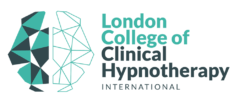Self-hypnosis is a fascinating and increasingly popular method for
improving various aspects of one’s life. In this article, we will explore what
self-hypnosis is, how it works, and the numerous advantages it offers for
personal development, health, and well-being.
The Power of Self-Hypnosis: Unlocking Your Full Potential
You’ve probably seen hypnosis portrayed as a mysterious figure swinging a
pocket watch in front of someone’s eyes. In reality, it’s a scientifically
recognised technique with numerous individual benefits. Self-hypnosis
empowers you to access your unconscious mind and harness its potential
for self-improvement.
Understanding Self-Hypnosis
Self-hypnosis, often referred to as autohypnosis, is a state of focused
concentration and heightened suggestibility that you induce in yourself.
You will bypass the critical faculty of your conscious mind to communicate
directly with your unconscious. During self-hypnosis, you remain fully
aware and in control, dispelling the popular misconception that you’re
under the complete control of someone else.
This practice can be achieved through various techniques, including
progressive relaxation, visualisation, and positive affirmations. By
regularly engaging in self-hypnosis, you can unlock its benefits.
The Science Behind Self-Hypnosis
Self-hypnosis operates on the basis of the mind-body connection, rooted
in neuroscience and psychology. Your brain is an incredibly powerful
organ, and it plays a pivotal role in governing your thoughts, feelings, and
behaviours. When in a state of self-hypnosis, you enter a highly
suggestible state where the unconscious mind becomes receptive to
positive suggestions. These suggestions can then shape your thoughts,
emotions, and actions, leading to significant personal growth.
Numerous studies have demonstrated the effectiveness of self-hypnosis in
harnessing the power of the mind. For instance, research published in the
American Journal of Clinical Hypnosis has shown that self-hypnosis can
significantly reduce your pain perception, anxiety, and stress levels. Your
brain’s ability to influence these factors showcases the tangible benefits of
self-hypnosis for your personal well-being.
The Benefits of Self-Hypnosis
Stress Reduction: One of the most significant advantages of self-
hypnosis is its ability to help you reduce stress and anxiety. Stress is
a common modern-day problem that can lead to various health
issues, both physical and mental. When in a state of self-hypnosis,
you can effectively manage stress by accessing your unconscious to
promote relaxation and inner calm. This practice helps in reducing
the production of stress hormones, such as cortisol, and allows your
body and mind to unwind.
Improved Sleep: Sleep is crucial for overall well-being, and self-
hypnosis can aid in improving your sleep quality. By using self-
hypnosis techniques to relax your mind and body before bedtime,
you can fall asleep more easily and enjoy a deeper, more restful
sleep. This results in increased energy, better cognitive function,
and a stronger immune system.
Overcoming Phobias and Fears: Self-hypnosis can be a valuable tool
for overcoming phobias and irrational fears. Many people suffer
from anxiety-inducing phobias, such as fear of flying, public
speaking, or spiders. Self-hypnosis helps you address the root
causes of these fears, reframe your thought patterns, and build self-
confidence. Over time, this can lead to a substantial reduction in the
impact of phobias on your life.
Weight Management: Weight management is a prevalent concern
for many, and self-hypnosis can be a supportive technique in
achieving weight-related goals. By addressing the psychological
aspects of overeating, unhealthy food choices, and emotional eating,
self-hypnosis can reprogram your thought patterns to support
healthier eating habits and weight loss. Studies have shown that
people who incorporate self-hypnosis into their weight loss efforts
tend to achieve better and longer-lasting results.
Increased Self-Confidence: Self-confidence is a key driver for
personal and professional success. Self-hypnosis can help you boost
your self-esteem and self-assurance by replacing self-limiting beliefs
with positive affirmations. This fosters greater confidence and
enhances your ability to set and achieve ambitious goals.
Pain Management: Chronic pain can be debilitating and severely
impact your quality of life. Self-hypnosis offers a non-invasive and
drug-free approach to pain management. By entering a hypnotic
state, you can effectively control and reduce pain perception. This
technique is often used as a complementary therapy for conditions
like fibromyalgia, migraines, and arthritis.
Improved Focus and Concentration: In our fast-paced world,
maintaining focus and concentration can be challenging. Self-
hypnosis helps you enhance your cognitive abilities by training your
mind to eliminate distractions and stay on task. This is especially
beneficial for students, professionals, and anyone looking to
improve their productivity.
Smoking Cessation: Smoking is a challenging addiction to overcome,
but self-hypnosis can be a valuable aid in the process of quitting. It
targets the unconscious cravings and associations that fuel the
addiction, making it easier to break free from the habit.
Enhanced Sports Performance: Athletes often use self-hypnosis to
improve their performance. By creating mental imagery of success,
reducing performance anxiety, and enhancing focus, athletes can
achieve their peak performance in various sports.
Getting Started with Self-Hypnosis
To experience the benefits of self-hypnosis, you need to get started. Here
are some simple steps to begin your self-hypnosis journey:
Find a Quiet Space: Choose a peaceful, distraction-free environment where you can
relax.
Set Clear Goals: Identify what you want to achieve through self-hypnosis. Whether
it’s reducing stress, overcoming a fear, or improving sleep, clarity on
your goals is essential.
Induce a State of Relaxation: Use relaxation techniques, such as deep breathing and progressive
muscle relaxation, to calm your body and mind.
Use Positive Suggestions: Formulate positive affirmations or suggestions related to your goals.
For example, “I am confident and capable” or “I sleep peacefully and
wake up refreshed.”
Visualize Success: Create mental imagery that reinforces your goals.
Visualize yourself succeeding and enjoying the benefits of your self-
hypnosis practice.
Practice Regularly: Self-hypnosis is most effective when practised
consistently. Dedicate time each day to your self-hypnosis routine.”

